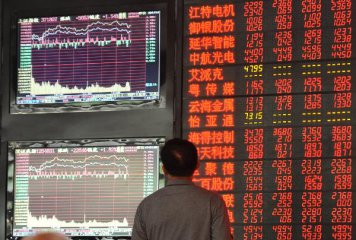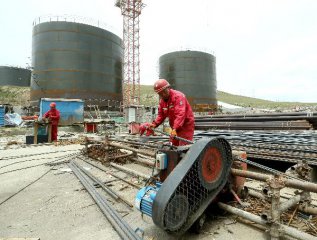
A hard landing of the Chinese economy seems unlikely, although recent developments have cast some doubt on China's economic prospects, according to the Global Competitiveness Report 2015-2016 released by the World Economic Forum (WEF) on Wednesday.
China has achieved near universal primary education and high levels of public health, invested massively in transport and energy infrastructure, and ensured a relatively stable macroeconomic environment, the report said.
These successes have not only contributed to China's emergence as a manufacturing hub, but also represented assets for its further growth, added the report. Meanwhile, WEF analysts said that an eventual slowdown of the Chinese economy was inevitable, predictable, and entirely normal, given China's impressive growth trajectory over the past two decades.
"There are signs that the government has been preparing for the economy's new phase and has been recalibrating its growth objectives from the quantitative to the qualitative," the report said.
The report said challenges and downside risks in China are many even though the economy is unlikely to experience a hard landing. It added that the most problematic factor for doing business in China is its lack of capacity to innovate, which has become a growing concern in recent years.
On Switzerland, the report shows that the European country remains the most competitive economy worldwide for the seventh consecutive year, with its strong performance in all 12 pillars of the Global Competitiveness Index (GCI), which explains its remarkable resilience throughout the crisis and subsequent shocks.
In particular, the country leads the innovation pillar, thanks to its world-class research institutions ranking first, high spending on research and development (R&D) by companies ranking first, and strong cooperation between the academic world and the private sector ranking third, Oliver Cann, one of the report's authors said.
Many factors contribute to Switzerland's innovation ecosystem, including the level of business sophistication ranking first worldwide and the country's capacity to nurture and attract talent, Cann added.
"The fourth industrial revolution is facilitating the rise of completely new industries and economic models and the rapid decline of others. To remain competitive in this new economic landscape will require greater emphasis than ever before on key drivers of productivity, such as talent and innovation," said Klaus Schwab, Founder and Executive Chairman of the WEF.
Switzerland boasts an excellent education system at all levels and is a pioneer of the dual education system, and its labor market is highly efficient, Cann said, adding that Switzerland's macroeconomic environment is among the most stable worldwide at a time when many developed countries continue to struggle in this area.
However, the author noticed that recent developments in the country have created a number of downside risks and leave little policy space, such as sluggish recovery in key trading partner countries, the appreciation of the Swiss franc following the exit of the exchange rate floor, near-zero inflation and negative real interest rates.
Furthermore, in the face of increased competition and rising costs, Switzerland must also consolidate its innovation edge, notably by addressing the challenges of skills shortage and an unfavorable demographic pattern, while avoiding the pitfalls of complacency populism, Cann said.
In this year's ranking, Singapore remains in the second place and the United States trailing in the third. Germany improves by one place to the fourth, while the Netherlands returns to the fifth place it held three years ago. Among emerging and developing Asian economies, the competitiveness trends are mostly positive, despite many challenges and profound intra-regional disparities.
The report is an annual assessment of the factors driving productivity and prosperity in 140 countries. This year's edition found a correlation between highly competitive countries and those that have either withstood the global economic crisis or made a swift recovery from it.
The GCI was introduced by the World Economic Forum in 2004. Defining competitiveness as the set of institutions, policies and factors that determine the level of productivity of a country, GCI scores are calculated by drawing together country-level data covering 12 categories that collectively make up a comprehensive picture of a country's competitiveness.





















Latest comments